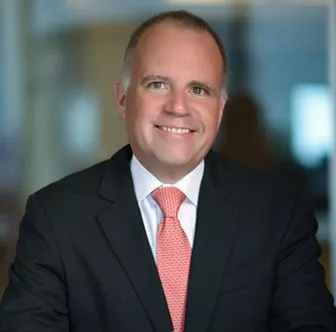13 May 2024
See how JMBM’s Global Hospitality Group® can help you.
In the article below, Partner Michael H. Strub, Jr., analyzes the complexities surrounding non-compete agreements and the FTC’s recent decision to ban them. With the enforceability of the FTC’s rule facing legal scrutiny, he discusses the likelihood of a cohesive federal approach and its implications for employers nationwide.
Navigating Non-Competes
by
Michael H. Strub, Jr., JMBM’s Litigation Group
The Federal Trade Commission’s rule that would ban non-competition faced legal challenges from the day it was issued. What are the obstacles the rule faces, and what is the likelihood that some form of federal rule will be created?
Before analyzing these questions, it should be noted that state laws on the enforceability of non-competes are, literally, all over the map. In his article, Fifty Ways to Leave Your Employer: Relative Enforcement of Covenants Not to Compete, 13 U. Pa. J. Bus. L., 751, 786 (2011), Norman Bishara ranked the states from 1 to 50 based on their willingness to enforce non-competes and had a separate ranking for each one. Based on his analysis, Florida is the state that has been the friendliest for enforcement, while California is the most hostile.
As Robert McAvoy notes in his article, How Can Federal Actors Compete on Noncompetes?, 126 Dick. L. Rev. 651 (2022), this panoply of laws is complicated by the employer’s efforts to use choice of law provisions to select the law of a friendly state even if the employee is employed in a state where non-competition clauses are invalid. In Stone Surgical, LLC v. Stryker Corp., 858 F.3d 383, 391 (6th Cir. 2017), for example, the court enforced a non-competition clause under Michigan law against a terminated employee even though the employee worked exclusively in Louisiana, whose law would have prohibited the agreement.
The clearest path to uniformity is through Congress. Although that currently seems unlikely, it is worth noting that both parties have introduced legislation governing non-competes. For example, the Workforce Mobility Act was introduced in 2018 by Democratic Senators Chris Murphy, Elizabeth Warren, and Ron Wyden, and the Freedom to Compete Act was introduced in 2019 by Republican Senator Marco Rubio. So the issue of the enforceability of non-competes is not one through which a bright political line can be drawn.
The enforceability of the new FTC rule is more tenuous. The FTC’s ability to regulate non-competes is derived from Section 5 of the FTC Act, which prohibits “unfair methods of competition” and “unfair or deceptive acts or practices in or affecting commerce.” 15 U.S.C. § 45. The FTC has never passed a rule based exclusively on this authority. And its ability to do so is based on the 50-year-old decision in National Petroleum Refiners Association v. Federal Trade Commission, 482 F.2d 672 (D.C. Cir. 1973), which held that the FTC has the authority to promulgate trade regulation rules. Ten years later, the Supreme Court required federal courts to defer to civil servants and administrative agencies—so-called “Chevron deference”—but it appears based on arguments earlier this year that the Court is prepared to overturn that doctrine. Moreover, even if the FTC rule survived, it is unclear whether it would preempt state law, particularly in states that have a fundamental interest in enforcing non-competes.
Employers will be monitoring the litigation closely even if they are not directly participating in it. And once the enforceability of the new FTC rule reaches the Court of Appeals, we can expect to see amicus briefs filed from a variety of interested parties.

Michael H. Strub, Jr. is a partner at Jeffer Mangels Butler & Mitchell LLP and a member of JMBM’s Litigation Group. He is a highly skilled trial and appellate attorney who has handled high-stakes, complex commercial and business cases for 30 years including disputes arising out of hotel construction, lending, and bankruptcy.
In addition, he has represented plaintiffs and defendants in business and commercial disputes in a variety of areas. Contact Michael H. Strub, Jr. at 949.623.7233 or MStrub@jmbm.com.

This is Jim Butler, author of www.HotelLawBlog.com and founding partner of JMBM and JMBM’s Global Hospitality Group®. We provide business and legal advice to hotel owners, developers, independent operators, and investors. This advice covers critical hotel issues such as hotel purchase, sale, development, financing, franchise, management, ADA, and IP matters. We also have compelling experience in hotel litigation, union avoidance and union negotiations, and cybersecurity & data privacy.
JMBM’s Global Hospitality Group® has been involved in more than $125 billion of hotel transactions and more than 4,700 hotel properties located around the globe. Contact me at +1-310-201-3526 or jbutler@jmbm.com to discuss how we can help.
How can we help? Brochure Credentials Photo Gallery



